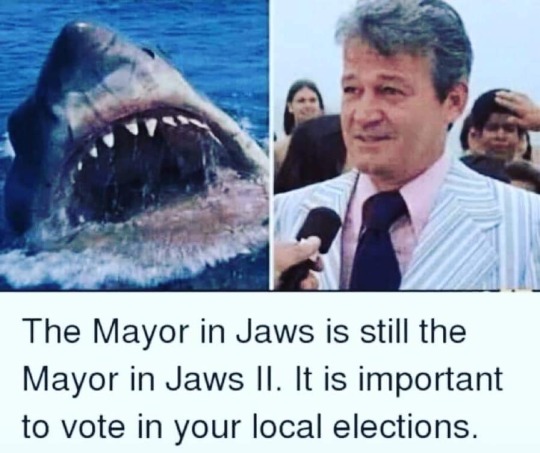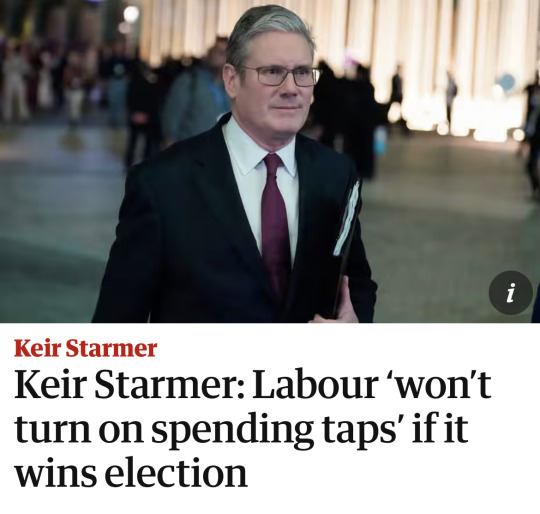#local government
Text
"After a year of the statewide fee on single-use plastic bags, the Eco-Cycle recycling center in Boulder estimates between 1.5 billion and 1.8 billion fewer plastic bags were used in Colorado in 2023.
The center anticipates a greater reduction in use in 2024 as businesses phase out the use of single-use plastic bags in most cases.
Eco-Cycle calculated its estimate by taking the number of plastic bags each American uses per year on average — 365, according to National Geographic— and factoring Colorado’s population, along with reduction estimates from several local communities.
Randy Moorman, Eco-Cycle’s director of policy and community campaigns, said the reduction is crucial because single-use plastic bags are the number one contaminant found in Colorado’s rivers and streams. They also are not able to be fully recycled and instead have to be “down-cycled” into other products...
Businesses in Colorado have until June to use whatever single-use plastic bags they already have while still collecting the 10-cent fee. The collected fees are divided between the business and the local government to fund green initiatives. Denver, for example, has collected $5 million for its special revenue fund since its fee was implemented in 2021.
Becky Goyton, an education coordinator with Denver’s Office of Climate Action, Sustainability, and Resiliency, said the money has funded many environmental initiatives, including the purchase of reusable bags for residents and sustainable products for small businesses. Unlike most budgetary matters, Goyton celebrates the decline in revenue to the fund.
“Having some revenue to do some great projects and reinvest in the community is wonderful, but it’s not our goal,” Goyton said. “Our goal is to see that fee go down and that revenue go down because that means more people are bringing their own bag and less disposable bags are being put out into the community.”
In addition to single-use plastic bags, Colorado businesses are also required to phase out Styrofoam containers this year. Like with plastic bags, businesses are permitted to use already-purchased Styrofoam products but cannot obtain any more."
-via ABC Denver7, January 11, 2024
--
And further progress just kicked in at the beginning of this year:
"[On January 1, 2024], the next phase of Colorado's plastic bag ban takes effect. The next step for HB21-1162 is that stores will no longer have plastic bags at all. They will only offer recyclable paper bags which will still be 10 cents each. Stores that already have stock of plastic bags already, can use those up before making the transition...
Businesses that don't comply can face up to $500 in fines for a second violation and up to $1,000 in fines for a third and subsequent violation."
-via ABC Denver 7, December 25, 2023
#colorado#denver#united states#plastic bags#plastic bag ban#styrofoam#environmentalism#litter#pollution#local government#us politics#good news#hope#environment#sustainability
189 notes
·
View notes
Video
please show up to your local government meetings. they are counting on people now showing up and seeing what they are doing.
#tiktok#drag bills#drag queens#drag shows#drag bans#LGBTQ#oppressor#local government#discriminatory#discrimination#law#Tennessee#memphis#knoxville#theatre#law and legislation
848 notes
·
View notes
Text

5K notes
·
View notes
Text
Observation.
The fact that the ideas of the far Left do not work from a practical standpoint is yet another reason that the Left seeks federal power. Federal power mitigates the damage that these ideas do. Control of the money "printing press" means the ability to continually offset and delay the negative consequences of your decisions. When far Left ideas are simply left to function on their own, in cities on the local level, things quickly go awry. Federal power masks the harm. It was actually more federal money (not suitable border policy) that local Democrats like Mayor Eric Adams of New York were looking for recently from the President; money to support their sanctuary city policies. President Biden fortunately opted for a more realistic solution this time, after initially setting the welcome mat which encouraged the original crisis.
The fruit of Left-wing social policies and crime policies can be seen locally in blue cities across the country. But I think that New York is one of the most fascinating examples because there we can see the cause and effect more vividly than we can anywhere else. Each time the city has changed hands politically we have seen the tangible results. Liberals reigned over the city for over 20 years straight throughout the 70's and 80's, presiding over the worse crime wave in its modern history (we're talking murder rates 5 times higher than today). Many of its inner city neighborhoods visually resembled third world countries; President Ronald Reagan was left speechless upon visiting the South Bronx. They are conditions that would not even be tolerated in the city today.
The seismic shift came about when Mayor Rudy Giuliani was elected in the 1990's and remained in power for 8 years. He was followed by Michael Bloomberg who ran as a Republican and kept most of Giuliani's policies in place. The city soon became unrecognizable, but in a good way. New York eventually obtained the reputation of one of "America's safest big cities". Times Square which was once a no man's land after dark became a family spot. But ultimately the first Democrat in years was elected as Mayor in 2014. In just 4 years people were already discussing the deterioration of the city. Today it is a topic of discussion outside of the city.
Why would we turn our national government over to policies and to ideologies that we have seen we cannot turn our cities over to?
108 notes
·
View notes
Text
A reminder that Westminster used public money to bail out irresponsible banks, but won't bail out councils providing vital services to vulnerable people.
Trigger warning for reporting of gaslighting and ableism from media and politicians in the article.
20 notes
·
View notes
Text
The Supreme Court and local government has killed Affirmative Action and DEI programs. Mediocre whites can now rest easier!!!

#supreme court#alabama#local government#politics#republicans#affirmative action#dei#diversity#inclusion#anti blackness#racism#white people#yt folks
14 notes
·
View notes
Text
Raise Taxes on Golf
I saw a post about how much housing could be built on the 'open' space of a golf course. It got me thinking that... I don't think there's a quick way to actually get people to stop making golf courses. I don't think there's an achievable way to make 'repurpose these golf courses into something useful, like affordable housing' in the next twenty years. There aren't any ways to easily, quickly force these places to change what they are doing.
I wish there was, but most of them (over 80%) are private property:
According to the National Golf Foundation, in 2020, there were roughly 16,100 courses at 14,100 facilities in the U.S. Of that total, 75 percent are open to the public: 2,500 municipal and 7,900 daily-fee. That leaves approximately 4,025 courses labeled as private. (source)
So the ones we can actually influence are the ones that are not owned by the megarich; I'm not upset about a community pool the same way I'm upset about a multimillionaire keeping five pools active in his backyard during a drought.
But you know what we can do? Bother our representatives about raising taxes on golf courses, and closure of courses will likely follow.
You want to use up a whole lot of land that could be used for public housing or environmental restoration or wild animal rehabilitation or any number of better things? Pay out for the government to do those things elsewhere.
Currently, most privately-owned golf courses are taxed at ludicrously low rates. I was going to link sources, but there are individual articles for state after city after county, and the common thread is that golf courses are taxed at a fraction of what they should be. These private courses enjoy subsidies that functionally come out of other incomes.
So... contact your senators, reps, local government, whomever. Raise taxes on golf courses, and maybe we can actually get them to stop spreading.
Remember! If the course isn't making money (which, if the taxes are raised, many will be losing out on a lot of profit), then it might not stay a golf course. Sure, they might just raise entry prices to their members... but at least we'll be getting the taxes rightfully owed for the usage of that much land, and put it to use elsewhere.
414 notes
·
View notes
Text
town meetings r where all residents of a town meet to vote / discuss laws / bills / etc. all resididents, not just representatives can talk. wikipedia article here
wikipedia says that this only happens in new england which is. very strange to me. what do you dooo ?????? so i'm asking for confirmation
pls reblog for a bigger sample size and also if you wouldn't mind say where you r from and what you do instead i suppose ?
#town meetings#local government#government#new england#poll#polls#tumblr poll#tumblr polls#politics#rain feathers talks
11 notes
·
View notes
Text
Community groups, charities and even small groups of neighbours would be able to cultivate fruit and vegetables on suitable council land in what campaigners say will provide healthy local food, boost mental health and revive neglected spaces.
Hull councillors unanimously passed the “right to grow” motion that means the council will produce a map of suitable land it owns and help those who want to grow food on it overcome practical obstacles such as insurance or provision of water for the plants.
19 notes
·
View notes
Text
So I've been forced onto insta (not that I'm bitter at all /sar)
but the funniest thing to come out of it in my natural tumblr ability to just react to any ad given to me with cruel dragging. And bc I guess ppl don't typically interact with ads I'm the first one on these posts just dragging them for plastic usage. The fave one so far was my city was advertising a new upgrade to downtown which is the only walkable part of the entire city and is, who could have ever guessed, one of the best places in the city to hang out as a result.
So now the entire ad, which they had to pay for, is filled with me and other ppl demanding fruit trees and proper drainage over renos. demanding biking protection and walkable spaces in actual communities.
that part has been fun at least!! /honest
#local government#Instagram#rambles#praxis#accessable cities#Solarpunk#bully corporations#tone tags#I should mention by forced I mean my job requires Instagram interaction with my companies and coworker accounts
48 notes
·
View notes
Text
Last night I went to a local city hearing on the noise ordinance. A city council person (not mine) was there, along with the city manager, and they showed a 5-point revision to the ordinance, along with 3 citizen-proposed amendments.
I was incredibly impressed and have such great faith in my local government. The 5 points they came up with were impeccable, each and every one addressed a major shortcoming. For example, they found a way to use cheaper noise-measuring equipment without affecting accuracy, and reduce the burden on city employees to measure noise levels.
There was also a move away from policing. One of the key reforms was that they were changing noise ordinance violations from a criminal offense to a civil offense. This would allow a city code inspector, rather than a police officer, to issue the violation. This right off the bat means less unnecessary police involvement in the community, fewer police showing up at people's homes.
On top of this, it means the appeal process can be initiated by the person who filed the complaint, something not possible under the old setup (it was left to the discretion of the responding officer, and if the officer didn't think it is a violation there is no recourse to appeal no matter how bad the noise is.) On top of this, the appeal process is now handled by a local city committee instead of a court, which makes it both much cheaper, and more accountable to the community because the city committees tend to be populated by local residents who are more networked into the community here.
So the reform (1) saves money in multiple ways, from equipment to policing costs to court costs (2) reduces appearances of armed police officers at homes or businesses (3) gives more power to people filing noise complaints (4) makes an easier and cheaper appeal process to people on either side of complaints (5) makes the ordinance faster and easier to enforce in certain cases such as complaints about stationary (industrial) noise.
All of this is happening on a time-scale of 4 months or so. I really hope it passes. I voiced my full support for all the proposed changes. I think it may have mattered too, as there were a few people who were opposing some of the changes and I think I voiced stronger support for the changes than anyone else present.
If you care about reducing unnecessary policing and reforming local laws, this is the kind of stuff you can get into.
Don't just go to protests, get involved in your local government. They may already be doing some good things and your voice may make a difference.
5 notes
·
View notes
Video
please show up to your local government meetings. Join your local boards and commissions. Most cities will have agendas of what will be talked about in the meetings and when they are. You can find applications to join your local boards and commissions
#tiktok#alaska#books and libraries#local government#libraries#library#native american#land acknowledgment#indigenous
144 notes
·
View notes
Text

Local government will run out of money if Starmer doesn’t restore some funding from central government. Thurrock, Croydon, Birmingham, Nottingham and Woking will only be the beginning.
17 notes
·
View notes
Text
Not only is the council tax in Birmingham going up by 21% over the next two years, but they've now detailed how much they're gutting the arts sector.
God forbid anyone wants to enjoy the small portion of their life that they're not working to be able to simply exist 😐
3 notes
·
View notes
Text
Private companies are stealing public parks
“For years now, entertainment mega-corporations have targeted cash-strapped councils as amenable, affordable hosts for their events. From Clapham Common to Glasgow Green, city-dwellers across the UK have become accustomed to basslines vibrating their windows, five-metre fences encircling their playgrounds, and security guards policing what are effectively their gardens.
“Yet as entertainment companies try to recuperate massive pandemic losses with aggressive multi-year deals, while the climate crisis renders urban summers increasingly unbearable, the privatisation of public parkland is becoming harder to swallow.
“In April, dozens of Haringey residents descended on FoFP’s biggest-ever meeting to vent their frustrations, while a recent petition demanding private companies keep their hands off Finsbury Park was signed by thousands ... For the most part, the work of groups like FoFP and FCC is polite engagement with the council to ensure the park is properly maintained. Yet as councils’ approach to major events has become more aggressive, so have the friends groups’.
“In 2016, FoFP took Haringey to court over its outdoor events policy. The group lost the case – though it did win an agreement from Haringey that the money made from the park would be spent on it. Haringey claims to have done this, though to FoFP, the numbers don’t quite add up: while in information obtained by Novara Media via an FoI request, the council claims it spent £871,626 on staffing Finsbury Park in 2020-21, many have questioned where the money is going: the park has had no park ranger since late October, no on-site manager since May. ‘If you’ve got this money […] you sure as hell didn’t spend it here,’ says Simon, pointing to the chipped paint of the bench on which she’s sitting.”
#public parks#parks#public space#green spaces#greenery#local councils#councils#local government#land use#festivals#music festivals#finsbury park#haringey#clapham common#hyde park#london#glasgow green#uk
7 notes
·
View notes
Text
A lot of people, even in Oklahoma don’t know that breaks are not mandatory in here. Personally, I think that should change.
27 notes
·
View notes